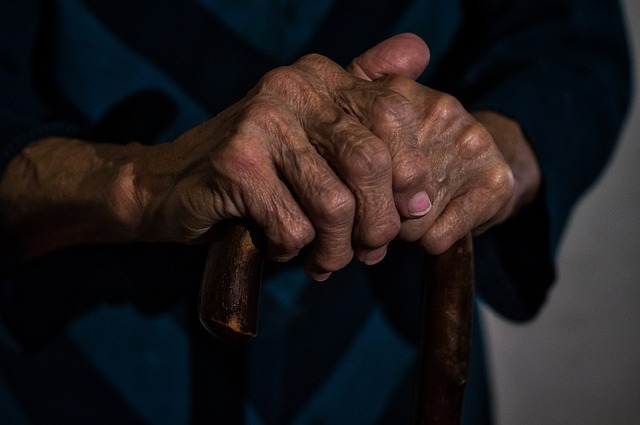Elderly companion services are designed to combat social isolation among seniors by providing personalized companionship and emotional support. These services involve activities that resonate with individual interests, such as sharing life stories or enjoying hobbies together. They offer significant cognitive and well-being benefits, helping to reduce loneliness and improve the quality of life for older adults. With advancements in technology, these services now facilitate virtual interactions with family and friends, deliver educational content, and keep seniors informed about social activities that align with their preferences. This innovative approach ensures that seniors can maintain an active social life despite any physical or geographical limitations. The integration of technology also supports mental and emotional health, contributing to a fulfilling later life. These services are pivotal in strengthening community bonds by fostering a sense of belonging and purpose for the elderly. They play a crucial role in ensuring that seniors can lead vibrant daily routines with dignity and connection.
Every visit holds the potential to brighten a senior’s day, offering respite from loneliness. This article explores how Elderly Companion Services are revitalizing social connections for those facing isolation in their twilight years. We delve into the pivotal roles that both volunteers and professional carers play in this endeavor, highlighting effective strategies for meaningful interactions. Through these programs and caring individuals, we can collectively enhance the quality of life for our elderly population, ensuring no one has to endure solitude in their golden years.
- Elderly Companion Services: Revitalizing Social Connections for Lonely Seniors
- The Role of Volunteers and Professional Carers in Combating Elderly Isolation
- Strategies for Meaningful Interactions and Friendly Visits with the Elderly
Elderly Companion Services: Revitalizing Social Connections for Lonely Seniors

Elderly companion services play a pivotal role in enriching the social lives of seniors who may feel isolated due to age-related mobility issues, the loss of peers, or the challenges of modern living that keep families busy. These services are designed to offer companionship and emotional support tailored to each individual’s preferences and needs. Trained and compassionate caregivers engage with clients through a variety of activities, from sharing stories and conversations to accompanying them on outings or helping with hobbies and interests. This not only helps in combating loneliness but also stimulates cognitive functions and contributes to the overall well-being of the seniors. The benefits extend beyond the immediate interaction as these services often facilitate a more connected and supported elderly population within communities, fostering a sense of belonging and purpose.
The integration of technology in companion services further enhances the experience by enabling virtual visits from family and friends, providing access to educational resources, and staying abreast of social activities that align with the senior’s interests. This hybrid approach ensures that elderly individuals remain socially engaged regardless of their physical limitations or geographical location. Through elderly companion services, seniors are afforded the opportunity to maintain a vibrant social life, which is crucial for their mental and emotional health, and for living a fulfilling life with dignity in their later years.
The Role of Volunteers and Professional Carers in Combating Elderly Isolation

Volunteers play a pivotal role in mitigating the issue of isolation among the elderly through companion services. These individuals offer valuable companionship, engaging lonely seniors in meaningful conversations, sharing experiences, and providing emotional support that can significantly enhance their quality of life. By dedicating time to listen and interact with older adults, volunteers help bridge the social gap that often accompanies advanced age. They assist with activities that promote both mental and physical well-being, ensuring a more enriched daily routine for those who might otherwise face extended periods of solitude.
In addition to volunteer efforts, professional carers are integral to addressing elderly isolation through companion services. These trained individuals are equipped to provide consistent, reliable support tailored to the specific needs of each senior. They offer personalized care that can range from organizing social outings to facilitating therapeutic activities, thereby enriching the lives of those in their care. Professional carers also maintain a vigilant watch for any signs of distress or decline in health, providing a safety net for elderly individuals who may be managing chronic conditions or mobility issues. Through this combination of dedicated volunteer work and professional expertise, elderly companion services can create a supportive network that helps ensure the elderly live with dignity, connection, and a sense of belonging within their community.
Strategies for Meaningful Interactions and Friendly Visits with the Elderly

Engaging with lonely elders through friendly visits can significantly enhance their quality of life, offering both emotional and cognitive benefits. To foster meaningful interactions during these visits, it’s beneficial to approach each encounter with empathy and an open mind. Active listening, sharing personal stories, and asking open-ended questions can help bridge the generational gap and create a connection. Encourage them to share their life experiences and memories, which serves as a form of reminiscence therapy that can improve mood and overall well-being.
When planning friendly visits, it’s important to tailor the activities to the individual’s interests and abilities. For instance, playing a favorite board game or going over old family photographs together can be delightful ways to spend time. Additionally, incorporating pet therapy sessions or arranging for an elderly companion service can provide companionship that mimics the warmth of having family nearby. These interactions not only alleviate loneliness but also offer physical and social stimulation, which are crucial for maintaining cognitive function in the elderly. Engaging with local elderly companion services can further support these efforts by providing trained individuals who specialize in creating meaningful connections with seniors. Through thoughtful planning and genuine interaction, we can make a significant difference in the lives of our aging population.
Community-driven efforts through elderly companion services play a pivotal role in addressing the silent epidemic of loneliness among seniors. By leveraging the empathetic engagement of both volunteers and professional carers, these services have developed meaningful strategies for interaction that enrich the lives of lonely elders. The positive impact of consistent, friendly visits cannot be overstated; they offer a lifeline to those who might otherwise feel disconnected from the world. As we reflect on the significance of such initiatives, it becomes clear that the well-being of our elderly population is an indicator of a compassionate and interconnected society. Thus, the expansion and support of elderly companion services are not just acts of kindness but essential components of a holistic approach to eldercare and community wellness.
